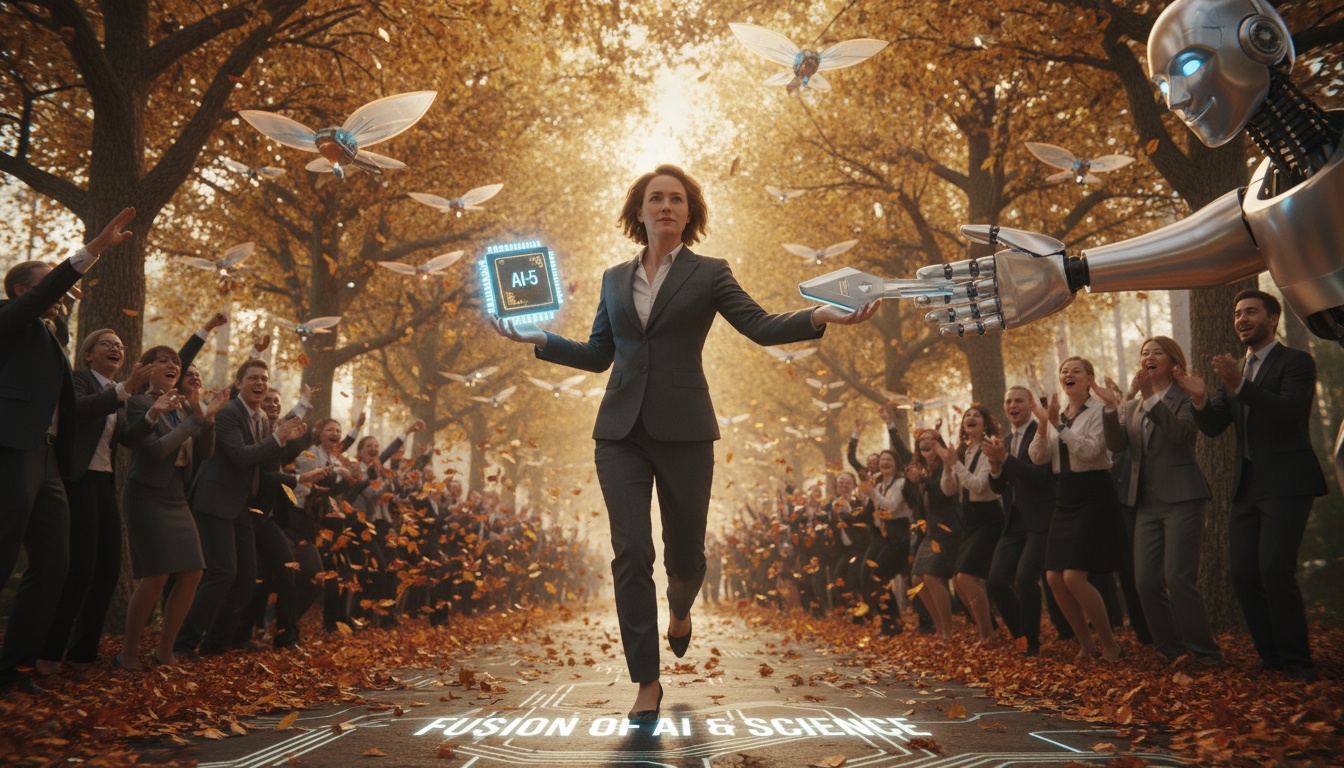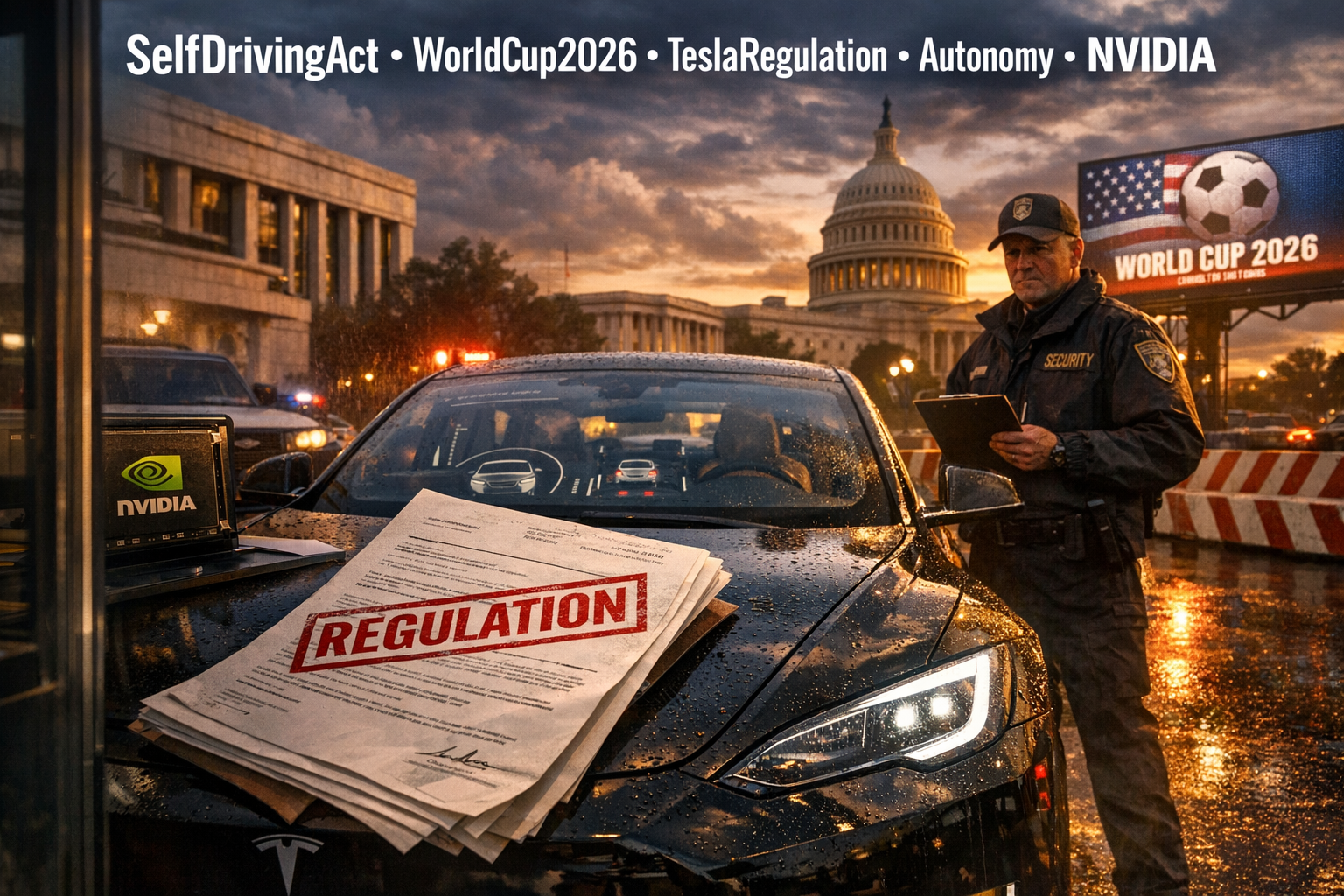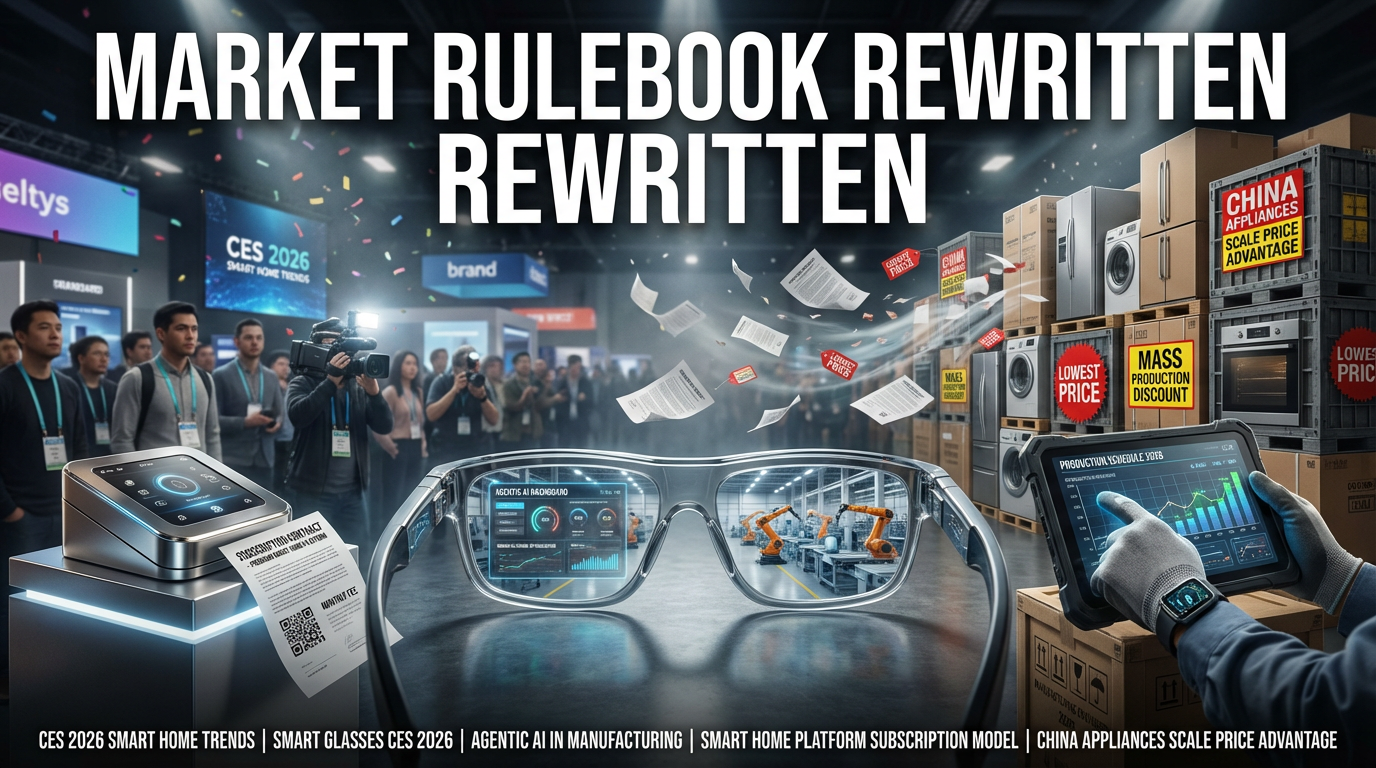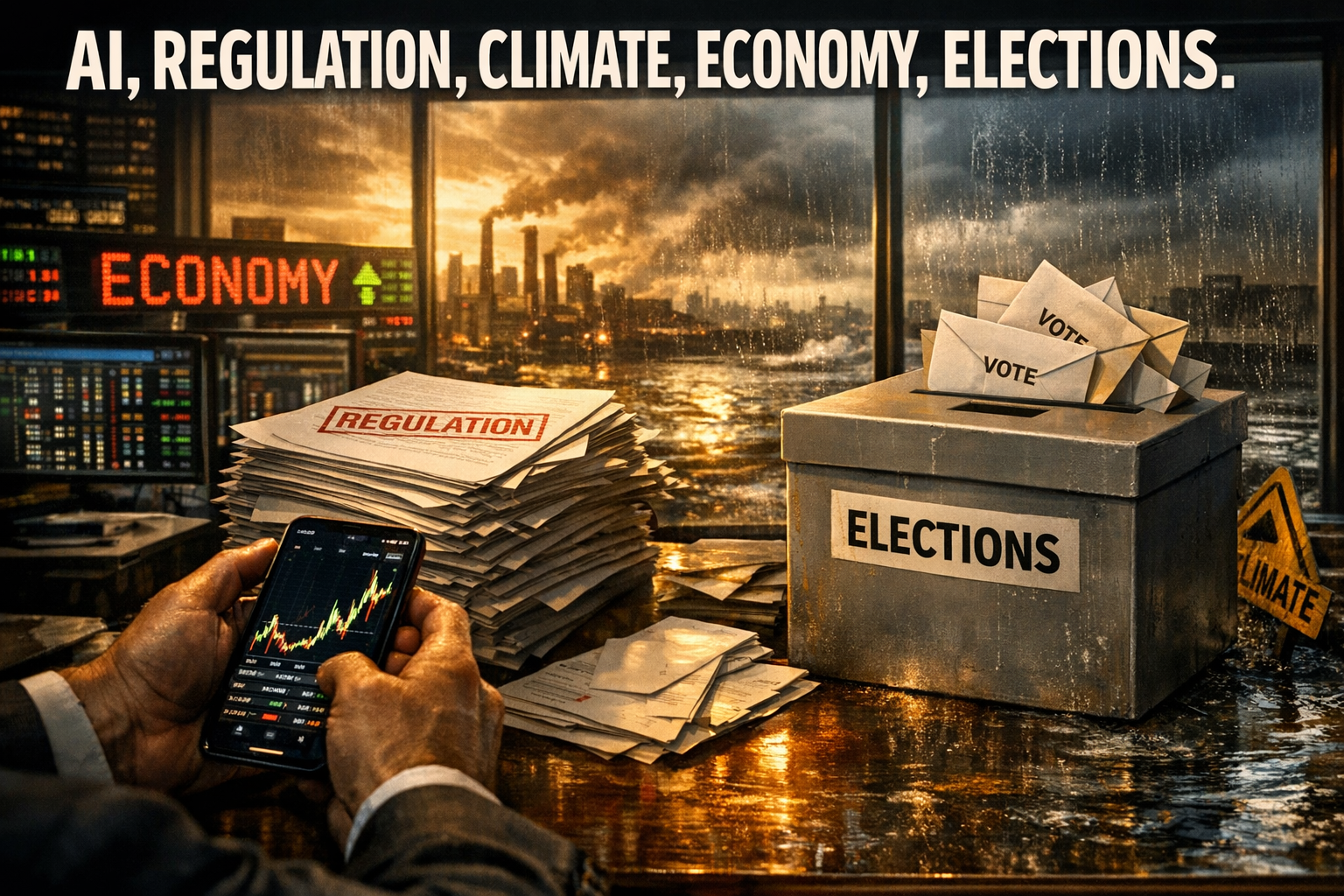● Tesla’s Game-Changing Compensation, AI Revolution, Autonomous Driving Breakthroughs, Economic Disruption
Analysis of the Shocking Impact of Tesla’s Shareholder Meeting and AI Chip Innovations on the Global Economy and the Fourth Industrial Revolution
Key Economic and AI Trend News from Tesla’s Shareholder Meeting
CEO Elon Musk’s massive compensation plan was overwhelmingly approved by over 75% of shareholders at the shareholder meeting.
This compensation plan is seen as a strategic decision to align the goals of Tesla’s CEO with those of the shareholders, allowing Musk to invest more in Tesla.
The unprecedented compensation system, which is structured in ten stages towards the goal of increasing Tesla’s value fivefold to $8.5 trillion, is noteworthy.
This announcement is analyzed to have significant impacts on the latest trends that drive the global economy and technology investments, especially in autonomous driving and AI-related technologies.
Optimus Bot and Next-Generation AI Chips: The Future of AI Trends and Technology Investment
Tesla unveiled its plans for the development of the Optimus Bot along with the production plan for the fully autonomous vehicle ‘Cybertruck’ set for next year, 2026.
The Optimus Bot is exploring various application fields such as human surveillance and crime prevention with plans for a version 3 release and a production line of 1 million units.
Elon Musk described this as a “money bug with infinite potential,” emphasizing how AI and robotics could potentially grow the global economy by ten times, and even a hundred times.
Additionally, speculation has arisen that Tesla’s own AI chip, the AI 5 chip, might be able to deliver power consumption lower than NVIDIA’s Black chip while costing one-tenth as much.
This chip is expected to play a crucial role in the advancement of autonomous driving technology with its efficiency and economy as a dedicated edge chip compared to general-purpose chips.
Such technological advancements are garnering significant interest from tech investors in the context of the Fourth Industrial Revolution and AI trends.
Autonomous Driving and Cybertruck: Future Prospects Based on Production Systems and Safety Data
The Cybertruck is designed to be a Robotech model that is produced without pedals or steering for fully autonomous driving technology, scheduled for initial production in April next year.
The innovative assembly method called ‘unboxing process’ boasts more than double the efficiency compared to traditional assembly methods, contributing to the reduction of production time.
The safety indicators of the Full Self-Driving (FSD) system also stand out, showing driving data that is more than seven times safer than the U.S. average, increasing the feasibility of adopting autonomous driving technology.
Direct Semiconductor Production and Musk’s Strategic Approach
Tesla is considering partnerships with semiconductor plants in Arizona and Texas, including Samsung Electronics and TSMC, for the production of the AI 5 chip as well as the next-generation AI 6 chip, and is examining the possibility of building its own semiconductor factory if necessary.
This outlook indicates a convergence of the semiconductor industry with autonomous driving and AI technologies within the global economy, heralding innovative changes in technology investment and economic transitions.
Musk’s strategy presents a next-level approach in the competition for autonomous driving and AI chip technologies, implying a significant impact on future global economic trends and the Fourth Industrial Revolution.
At the Tesla general meeting, Elon Musk’s colossal compensation plan received overwhelming support from shareholders, aiming to align the goals of the CEO with those of the shareholders.
The development plans for the Optimus Bot and the launch of the Cybertruck, along with the innovative cost and power efficiency improvements of the AI 5 chip, signal groundbreaking advancements in the fields of autonomous driving and AI trends.
Additionally, innovations in production systems and considerations for building its own semiconductor factory represent strategic moves that will significantly influence the global economy, the Fourth Industrial Revolution, and technology investments.
The analysis systematically outlines market trends and future prospects centered on key SEO keywords such as global economy, Fourth Industrial Revolution, AI trends, autonomous driving, and technology investment.
[Related Articles…]
Tesla Compensation Plan and Economic Implications of the Shareholder Meeting
AI Chip Innovations and Future Technology Investment Prospects for Autonomous Driving
*Source: [ 월텍남 – 월스트리트 테크남 ]
– 블랙웰 1/10가격에 성능은 비슷한 AI칩??
● AI Revolution Transforming Hiring Ignite Productivity
Global Economic Outlook and AI Innovation: LS Group’s AIX Success Strategy and Practical Application Cases
LS Group’s AI Innovation Approach
As companies focus on digital transformation and artificial intelligence technologies, LS Group’s implementation of work automation and AI agents in the AIX field is noteworthy.
Seungsoo Oh, Team Leader of the People Lab at LS Group, emphasizes the concept of “the capabilities of candidates that build the framework of their self-introduction.”
This reflects an approach that values the applicant’s expertise and domain knowledge rather than merely judging the surface-level writing skills of GPT-based self-introductions.
The combination of economic outlook and AI innovation systematically explains how hiring and work efficiency can be improved for companies.
GPT and Talent Selection, and the Future of AI Collaboration
LS Group is exploring more effective talent selection processes by integrating AI into existing aptitude tests and interview methods.
The use of GPT in self-introduction writing focuses on understanding the applicant’s intrinsic domain knowledge and creativity rather than just the format of the writing.
The ultimate collaboration between artificial intelligence technology and humans brings significant changes not only to hiring but also to the improvement of work processes.
To lead the global economy and AI innovation in the digital transformation era, companies should assess the foundational capabilities and creative problem-solving skills of users rather than merely relying on the tools.
AI and Finance/HR Innovation: Practical Application Strategies
Through the LS Group example, it can be confirmed that the adoption of AI is becoming active in finance and HR sectors as well.
AI models utilizing HR data analysis, HR analytics, and structured data from the finance sector are emerging as key elements that enhance efficiency.
In particular, attempts to redefine work processes alongside generative AI systems are contributing to increased productivity and efficiency.
When companies invest in AI and implement artificial intelligence technology, it is essential to thoroughly review existing work methods and focus on user-centered system design.
Key Implications and Future Challenges
The LS Group case clearly shows how digital transformation and AI innovation are being integrated into practical work across the global economy.
Companies should not just utilize AI tools; they must move towards enhancing the capabilities of ‘augmented humans’—that is, reinforcing existing expertise and creativity.
Moreover, talent selection and evaluation criteria are also changing in the AI era, emphasizing that the unique human spirit of challenge and flexible attitude remain critical competitiveness.
In the future, how companies will respond to productivity and capability gaps polarized by AI, and how much reflection will occur on traditional talent management approaches, will be crucial.
At the same time, continuous challenges are needed to find a balance between boundless expectations and vague anxieties regarding artificial intelligence technology and to apply them in practice.
[Related Articles…] LS Group’s Innovation Strategy The Future of AI and Talent Selection
*Source: [ 티타임즈TV ]
– AIX 잘한다고 소문한 LS그룹이 일하는 방식 (어승수 LS 피플랩 팀장)
● Alien Threat to Economy
Cosmic Mysteries and Global Economic Outlook: The Paradigm of the Future Shaped by Aliens, Black Holes, and AI Trends
The Existence of Aliens and Stephen Hawking’s Warning
Research on extraterrestrial life has moved beyond mere science fiction to influence the reality of the economic and technological environment.
Stephen Hawking warned that contact with aliens could lead to catastrophe, asserting that humanity must prepare for unforeseen dangers.
These statements have garnered attention as elements of uncertainty within the global economic outlook and the latest economic trends.
Modern AI trends and big data analysis technologies connect to the Fourth Industrial Revolution by interpreting and predicting the vast information collected from space.
Black Holes, Dark Matter, and the Mysteries of the Universe
The powerful gravity and related phenomena of black holes provide new inspiration for the overall structure of the universe and for innovation in business and technology.
Dark matter and dark energy remain a mystery of the universe, influencing the rotation speed and structure of galaxies despite being invisible to our eyes.
Such research hints at the far-reaching effects future space industries may have on economic outlooks and global economic forecasting, emerging as significant investment targets in advanced technology fields.
Particularly, the core technologies of the Fourth Industrial Revolution, such as AI and robotics, are expected to create new economic opportunities when combined with space exploration and black hole research.
The Meeting of Space Exploration, Economy, and AI Innovation
Space exploration is emerging as a crucial pillar of future economies, extending beyond mere scientific research.
Mars colonization, space travel, and the exploration of exoplanets are significant factors that may transform international competition and global economic forecasts in the long term.
According to the latest economic trends, investment and technological development related to the space industry have a substantial impact on economic outlooks, while AI trends play a vital role in enhancing the efficiency and safety of this field.
Converging technologies suited for the Fourth Industrial Revolution will become the driving force not only for the space industry but also for overall global economic development.
Special Attention! The Most Important Content Not Covered by Other Media
Stephen Hawking’s warnings about aliens and advanced life forms offer significant implications for humanity’s safety and the formulation of economic strategies, transcending simple scientific curiosity.
The possibility that black hole research, intertwined with dark matter and dark energy solutions, may lead to the creation of new industries is a key point that is seldom covered in mainstream news.
The convergence of the space industry and AI trends is expected to act as an unprecedented force of innovation in the global economic outlook of the Fourth Industrial Revolution.
Continuous research and investment strategies in these unknown realms will be crucial keys to reshaping the future economic landscape.
[Related Articles…]
Reasons for Catastrophic Encounters with Aliens: Reasons for Catastrophic Encounters with Aliens
Black Holes and the Mysteries of the Universe: Black Holes and the Mysteries of the Universe
*Source: [ 지식인사이드 ]
– 스티븐 호킹이 외계인과의 접촉을 ‘재앙’이라고 한 이유ㅣ지식인초대석 EP.78 (황호성 교수 1부)



